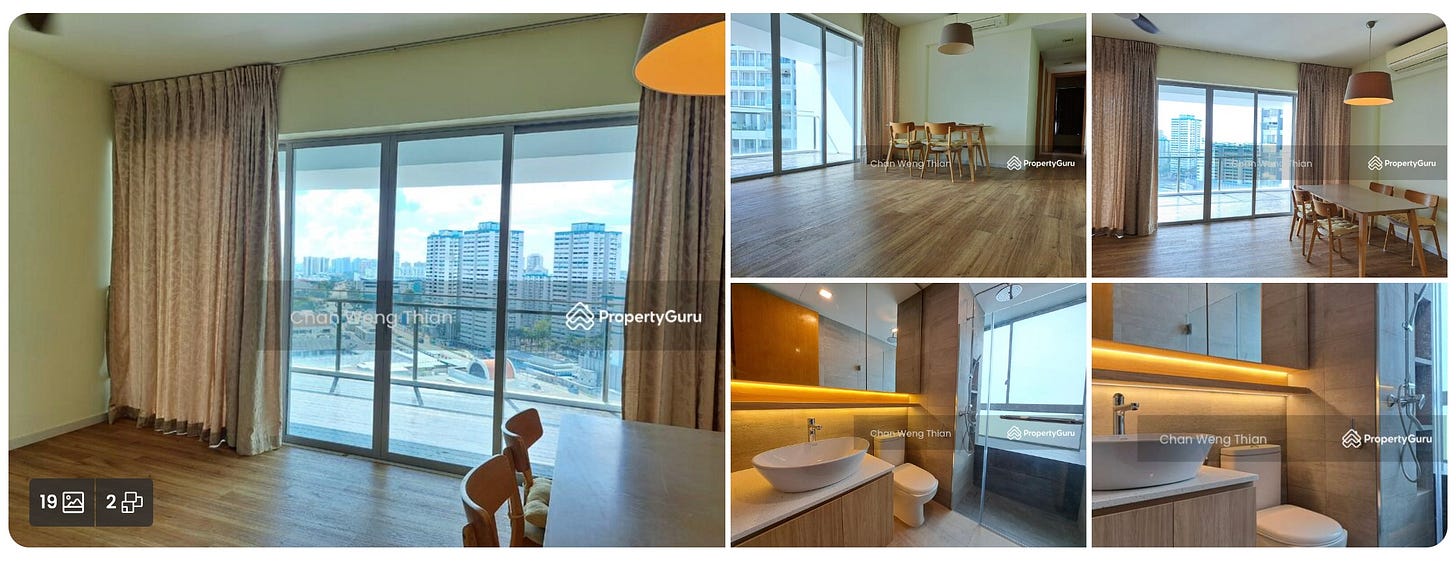I’m not very good with tension. I never understood the appeal of games like Operation, where players use tweezers to pluck objects from various cavities, with the slightest misstep triggering a buzzer that makes me jump like a toaster cat.
But that’s nothing compared to the tension of house-hunting in Singapore.
Accommodation is such a massive monthly expense in Singapore (see The cost of expat living) that it seems reasonable to want something perfect in exchange for that money. But in a crowded housing market like Singapore, finding perfection is far from easy.
The game begins with PropertyGuru, a service aimed at swarthy men who wear cut-off denim shorts, have luxuriant hair and cuddle fluffy dogs. Despite not qualifying on any of those criteria, I start searching and soon discover that the photo above is a far cry from what accompanies the property listings.

The Venn diagram of people in Singapore who are estate agents and people in Singapore who are half-decent photographers apparently has no overlap. The majority of listings are illustrated by these hasty smartphone snaps, often of the same bare room from marginally different angles.
They hardly get the blood pumping. But even more bewilderingly, some postings perkily report that the images shown are not the actual photos of the unit being marketed, which makes you wonder how bad the reality must really be. Some of the building names are equally un-inspirational: Levelz, Tedge and D’Zire being some of the most notable examples.
As a distraction technique, listings frequently include idealised renderings that show a tower surrounded by idyllic jungle paradise, as you can see from the below-left building, compared to the actual surroundings which I took from Google maps. It’s really not a jungle out there.
Yet checking PropertyGuru listings is the intrepid house-hunter’s only option. Every day, it’s the same cycle of addiction: open your saved searches, sort them by newest-first and scroll past the same old listings that get reposted multiple times by estate agents gaming the system.
Speaking of whom, both landlord and tenant need to have their own estate agent in Singapore. This convention - a rare quirk compared to Singapore’s usual streamlined efficiency - means that once you find a listing that looks half-decent, you then ask your estate agent to contact the landlord’s estate agent, with all the transparency of an arranged marriage.
Many WhatsApps later, a viewing is arranged. On the two occasions that we’ve house-hunted in Singapore, we went through at least 25 properties before finding something worth making an offer on. (This is possibly how arranged marriages work too.)
Negotiations ensue between the estate agents, and the tension starts to feel a lot like trying to remove objects from various cavities without making the slightest misstep, but once you’ve paid the deposit and estate agent fees, signed the contract and found a removal firm, you can finally breathe a sigh of relief.
The operation is over. The toaster has popped. Now all I need to do is buy cut-off denim shorts and a fluffy dog.








We're in the uncomfortably liminal space of living in temporary accommodation and trying to buy a house in a place where we can only afford a very generic suburban run down box. Very humbling.